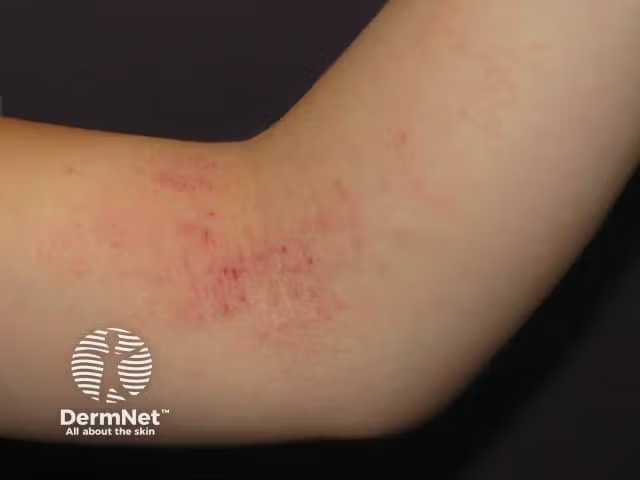- Case-Based Roundtable
- General Dermatology
- Eczema
- Chronic Hand Eczema
- Alopecia
- Aesthetics
- Vitiligo
- COVID-19
- Actinic Keratosis
- Precision Medicine and Biologics
- Rare Disease
- Wound Care
- Rosacea
- Psoriasis
- Psoriatic Arthritis
- Atopic Dermatitis
- Melasma
- NP and PA
- Skin Cancer
- Hidradenitis Suppurativa
- Drug Watch
- Pigmentary Disorders
- Acne
- Pediatric Dermatology
- Practice Management
- Prurigo Nodularis
- Buy-and-Bill
Opinion
Video
Assessing Quality of Life and AAD Research Considerations
Author(s):
Alan Irvine, MD, DSc, shares insights on the impact of ruxolitinib on quality of life in pediatric patients and 2024 AAD research presentations to take into consideration.
This news content has been independently developed and is not endorsed by the American Academy of Dermatology.
In this Dermatology Times Expert Perspectives series, 5 experts delve into the multifaceted aspects of pediatric atopic dermatitis care including demographic variances to long-term safety and efficacy, comparative analyses, key takeaways from recent research, personalized approaches, and future research directions. Discover clinical insights into the role of ruxolitinib (Opzelura) in addressing critical challenges and enhancing patient outcomes.
In this episode, Alan Irvine, MD, DSc, dermatologist at Trinity College Dublin in Dublin, Ireland, shares insights on the impact of ruxolitinib on quality of life in pediatric patients and 2024 AAD research presentations to take into consideration.
Dermatology Times Interview With Alan Irvine, MD, DSc
Dermatology Times: Beyond clinical measures, how does ruxolitinib influence the quality of life for pediatric patients with atopic dermatitis? Are there improvements in daily activities, social interactions, or psychological well-being that can be attributed to the treatment?
Irvine: So we did see a poster at AAD 2024 here in San Diego looking at quality of life in the pediatric ruxolitinib trial. It covered a wide range of patient-related outcome measures, everything from sleep to comfort to skin pain, quality of sleep, patient-reported outcomes information system (PROMIS) measures, lots of validated tools. Across the board, within 2 weeks and within 4 weeks of treatment there was a very significant shift in improvement, pretty much universally across all the quality of life measures that are recognized as being relevant for AD. So it's very positive in that way in younger kids reported by the parents, and the older kids reported by themselves are trending very well in the right direction with significant differences between the active drug and the vehicle arm in new studies.
In today's session, we looked at a broad range of different aspects of AD, you know, what we're learning about the epidemiology and with the microbiome role. We are in-depth looking at the barrier, including prevention and correction with treatments. We looked at the pipeline for systemic therapies and where things are positioning with novel topical therapies. So it was a comprehensive afternoon chaired by Amy Paller, MD. One of the standouts was the 52-week amlitelimab data for the first time because the OX40s have been developed with the hope that they may allow dose spacing lot longer than what currently available, injectable biologic therapies, which is 4 weeks and that might bring patients to a point where they can enjoy long-term control or an element of remission or disease modification over over a period of months after their initial induction treatment. The treatment is required to maintain them, and that step would be less frequent and that's a kind of a major step change in the management of AD.
There's a huge amount of innovation and activity around in topical therapies. Systemic therapies, like amlitelimab, is probably going to be the most interesting novel one that we that we will see, the first long-term data not including the withdrawal arm. There continues to be more evidence around long-term safety and JAK inhibitors. There's plenty of follow-up data on the monoclonals, including not yet licensed nemolizumab. There's some more data on that as well. So it's been a very rich conference in terms of new data, some really completely new classes of drugs. Very exciting time for for patients and their physicians.
Transcript edited for clarity






